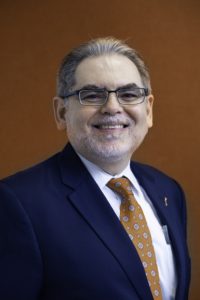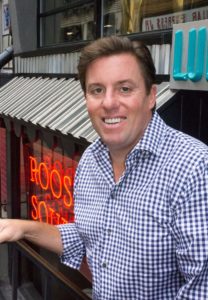How do you help the helpers? PHL COVID-19 Fund addresses the critical role of nonprofits
 March 26, 2020
Category: Featured, Medium, Purpose
March 26, 2020
Category: Featured, Medium, Purpose
During crisis people turn to trusted community organizations for help, support, and reassurance. But who helps the helpers when the crisis is as sweeping and pervasive as the COVID-19 pandemic?
The answer to that question, in Philadelphia, involves some of the city’s most effective problem-solvers from organizations across the public, private and philanthropic sectors who together created and launched the PHL COVID-19 Fund — all within the span of a week.
“It might have been three days,” said Bill Golderer, the president and CEO of United Way of Greater Philadelphia and Southern New Jersey. “The power of now is that everyone is very focused.”
“It might have been a week,” countered Pedro Ramos, the president and CEO of the Philadelphia Foundation. “Though it felt like one long day.”
The two men co-direct the the fund created to aid nonprofits that are on the frontline of the pandemic, providing urgent resources throughout the Philadelphia region. When Mayor Jim Kenney announced the fund’s launch March 19, the fund had already raised $6.4 million in funding — with a $3 million lead gift from the William Penn Foundation — and had lined up partners including Philanthropy Network Greater Philadelphia, The Fund for the School District of Philadelphia, The Lenfest Foundation, The Patricia Kind Family Foundation, Independence Blue Cross, Comcast Foundation, Wells Fargo Foundation, PECO, and the Greater Philadelphia Chamber of Commerce, among many others.
But the fund isn’t a static thing — it is designed to be agile and responsive to rapidly shifting needs — through a streamlined portal.

A screencapture of the PHL COVID-19 portal showing how the website’s visitors can donate, apply for grants or volunteer.
“The public can contribute financially, nonprofits can make their needs known, and there is a way for volunteers to offer their services virtually,” Ramos said, “while we continue, in a coordinated way, to bring in institutional support.”
Twenty-four hours after the fund was launched and the portal went live, 211 individuals had contributed $43,000 to it, and $25K from a local foundation had been secured.
The early positive response seems to reinforce Ramos’ belief that the fund will “tap into [Philadelphia’s] generosity of spirit and inspire volunteerism, especially when it impacts those most vulnerable” to the effects of the public health crisis and the attendant stay-at-home safety measures.
“It won’t surprise you to hear that the phones have been ringing at the organizations that offer food support,” Golderer told Generocity. “Some people can afford to buy $1,500 of chicken [to eat while they are isolated at home], but others depend on food cupboards for their needs.”
[Editor’s note: see Generocity’s Food in the time of COVID-19 for a continuously updated resource list that includes food banks and emergency food and meal providers.]
“The grant process starts at the portal,” Ramos added. “That’s how we hear about the providers, many volunteer-led, who are seeing a surge in need; the pantries, the nonprofits whose needs are going to continue to evolve as the health crisis continues.”
“This is as simple as we can make it,” Golderer added, “because we want to make huge progress in a short time.”
When Generocity spoke to the co-directors, some 24 hours after the Fund’s launch, they had already received 200 grant applications.
“The vision for this is a rolling cycle for funding,” Golderer said, “making sure the dollars will reach who they need to reach … 100 cents of every dollar raised by the fund will find its way into community.”
“We want to be hyper and over-communicative about how these funds are being invested,” he added, “but also about the real impacts [they are making].”
The City of Philadelphia is conducting a survey about the current state of conditions for nonprofits, but it does not influence the request for funds nonprofits can make via the portal.
At the beginning of the creation of the PHL COVID-19 Fund, when the phone calls flew fast and frequent between Golderer and Ramos as they enlisted multi-sector partners and coordinated next steps, the pair already knew what the rapid response fund’s success would look like.
“Success, in the end,” Ramos said, “would be that we got as close as possible to being impactful in the ways and places where we needed to make the most impact.”
For Golderer, one of the definitions of success “is that the people on the frontline of responding [to this crisis] don’t feel isolated or alone, that they feel the solidarity they need.”
Trending News












